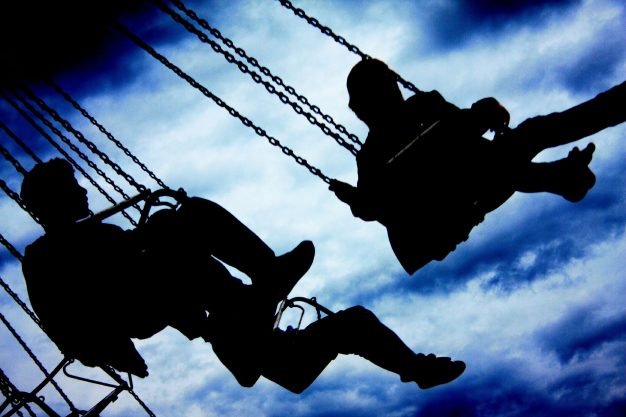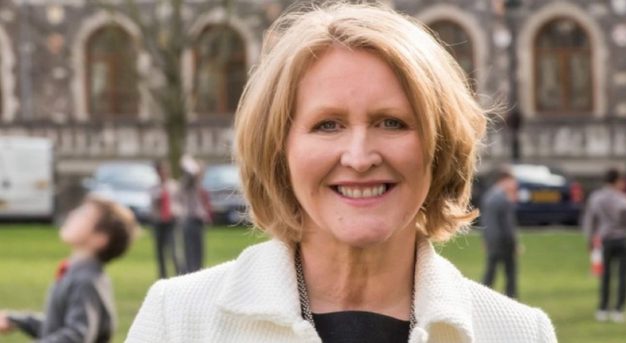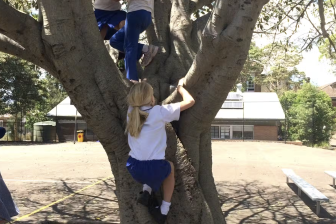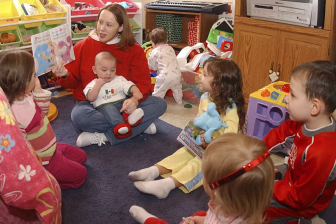
“Angry, fed up, isolated”: Coronavirus and children’s mental health
Children are no less affected by the worry and stress the coronavirus crisis can cause than adults. While it is reassuring that the virus rarely makes children physically ill, it can still impact on their mental health, writes Anna Longfield, England’s Children’s Commissioner.
In her latest blog, the commissioner says many children will be thinking about how school closures will affect their education, particularly those with GCSEs and A Levels, worrying about birthday parties being cancelled, and not seeing their friends, and anxious about when they will see their grandparents and other family members.
“The millions of children who are already growing up in vulnerable circumstances – those living in poverty, care or have special needs, or those who are already struggling with their mental health, are going to be facing particularly difficult times. And when times are turbulent, schools are closed and already hard-pressed services are losing staff to either sickness or redeployment, the gap for vulnerable children to fall through becomes that much wider.
Working hard to stand up for vulnerable children
“Over the last three weeks, my office has been working hard to stand up for vulnerable children, pressing the Government to do all it can for those who need to stay in school during the lockdown, those locked up in institutions and those receiving free school meals or whose families will be hit financially by the crisis.
“It is also important too that we focus on helping children who will be struggling with anxiety or depression calling for appropriate arrangements for children during and beyond this epidemic, including a focus on those children who are already struggling with mental health issues, and those who will be feeling very anxious and worried about the current situation.”
Accessing mental health support
The commissioner adds that when they have been talking to children as part of their ongoing work, mental health is a subject often brought up, as are the difficulties in accessing mental health support. During a recent consultation with children for her office’s 2020/21 business plan, children said:
- “Some of the things that I think could be improved around here would be having a better access to things like mental health services” – Sean, 18
- “As soon as you get to year 9 to year 11 they start giving coursework so the pressure increases. [I think that’s why] see so many people after GCSE’s with mental health concerns, because of the pressure” – Nathan, 14

Every four years, the ‘Health Behaviour in School-aged Children (HBSC) in England National Report’ looks at the health and social environment of young people aged 11, 13 and 15. Its recent findings show that over a fifth of children had experienced a high level of emotional problems during the last six months. The number of 15-year-olds who had felt low at least once a week since 2014 increased from 40 per cent to 50 per cent. This decline in emotional wellbeing was also reflected in a rise in self harming, now reported by a quarter of 15-year-olds. For boys, the number increased from 11 per cent in 2014 to 16 per cent 2018; and from 32 per cent to 35 per cent for girls.
Feeling stressed
So we already have many children, before the crisis, who are struggling. Our business plan consultation asked 2,000 children what they worry about – and feeling stressed and/or sad was the most common answer, with a third of 6 to 17-year-olds choosing this as one of their top three worries.
Last month, we asked another 2,000 children aged 8 to 17 years old whether they ever feel stressed, what in particular makes them feel stressed, what it’s like to feel stressed and what they do to feel less stressed. 88 per cent of all children said that they had ever felt stressed. This work coincided with the growing coronavirus crisis, and not surprisingly many children told us that the virus was their biggest reason for feeling stressed:
“Coronavirus. I hope my friends and family do not get it” – Boy, 10
“Coronavirus. Becoming ill” – Boy, 10
“Exams, uncertainty around coronavirus and how that affects schooling” – Girl, 17
“Covid19 and having to finish school and not knowing if I will go back to my school before going to secondary school and my friends and my parents” – Girl, 11
“Coronavirus with the shops closing due to my birthday coming soon” – Girl, 12
One boy said he was stressed as his dad had now lost his job: “The Corona virus made Daddy lose his work and money” – Boy, 9
And one girl worried about not being able to see both her parents: “The current crisis in the UK and not seeing my Dad as I am in lock-down at my mother’s house” – Girl, 15
When they asked how does being stressed make you feel one boy said:“Very bad. I feel sad and lonely” – Boy, 11
Others said:
“Overwhelming and I cry and then I don’t do any work. And then it’s a domino effect” – Girl, 17
“Trapped and isolated like i can’t ask for help even though i have support around me” – Girl, 17
“Angry, fed up, isolated” – Girl, 14
Childline, the children’s counselling charity, has also reported an increased demand in counselling sessions, and a Young Minds survey last month of children with a history of mental health needs showed 83 per cent saying the pandemic has made their mental health a bit or much worse. The lack of socialising, worries about families’ health, school closures and a loss of routine are all contributing to their worries. While three quarters of those surveyed said they were still able to have access to mental health support, usually online, a quarter were not receiving help. Another survey at the end of last month shows that over half of parents worried about their children’s mental health during this time; and parents’ main worries were ensuring they have enough food supplies (48 per cent), supporting children with school work (44 per cent) and money (39 per cent).
The commissioner adds: “In our survey, we when asked what they would do to manage stress, a quarter of those children who ever feel stressed said that they would normally go outside. Now, this option is only very limited. 43% said that they would hang out with their friends, family or pets.
‘More isolated than ever’
“Whilst many children are getting more time with immediate family, their time with their extended family and friends has been significantly reduced. For those with laptops and smartphones they can connect with friends through social media and use messaging apps to video call friends and family, but for those without, they are more isolated than ever.
“Many children are going to be affected by the coronavirus crisis. We need to help these children through this very challenging time. It is vitally important that they are able to still access mental health services – and it will be equally important that once the crisis has passed children struggling with their mental health are able to access the support and help they need. While mental health services for children are slowly improving, we are still a decade away from providing every child who needs access to mental health services the treatment they need.
Listed below are some of the Children’s Commissioner’s office’s key links for children and young people during the coronavirus:
- Tips, advice and where you can get support for your mental health during the coronavirus (covid-19) pandemic
- Coronavirus (COVID-19) advice and support for parents and carers
- Random Acts of Kindness during the coronavirus outbreak
- Helpful Information to answer questions from children
- Advice for young people, parents and carers, schools and colleges




Really interesting. For clarity and accuracy Ms. Longfield is the Commissioner for England, not the UK. Each of the 4 nations has their own Commissioner.
Dear Colin, thanks for pointing this out, it was a slip of the keyboard on my part. It’ll be amended shortly. Best wishes, Simon